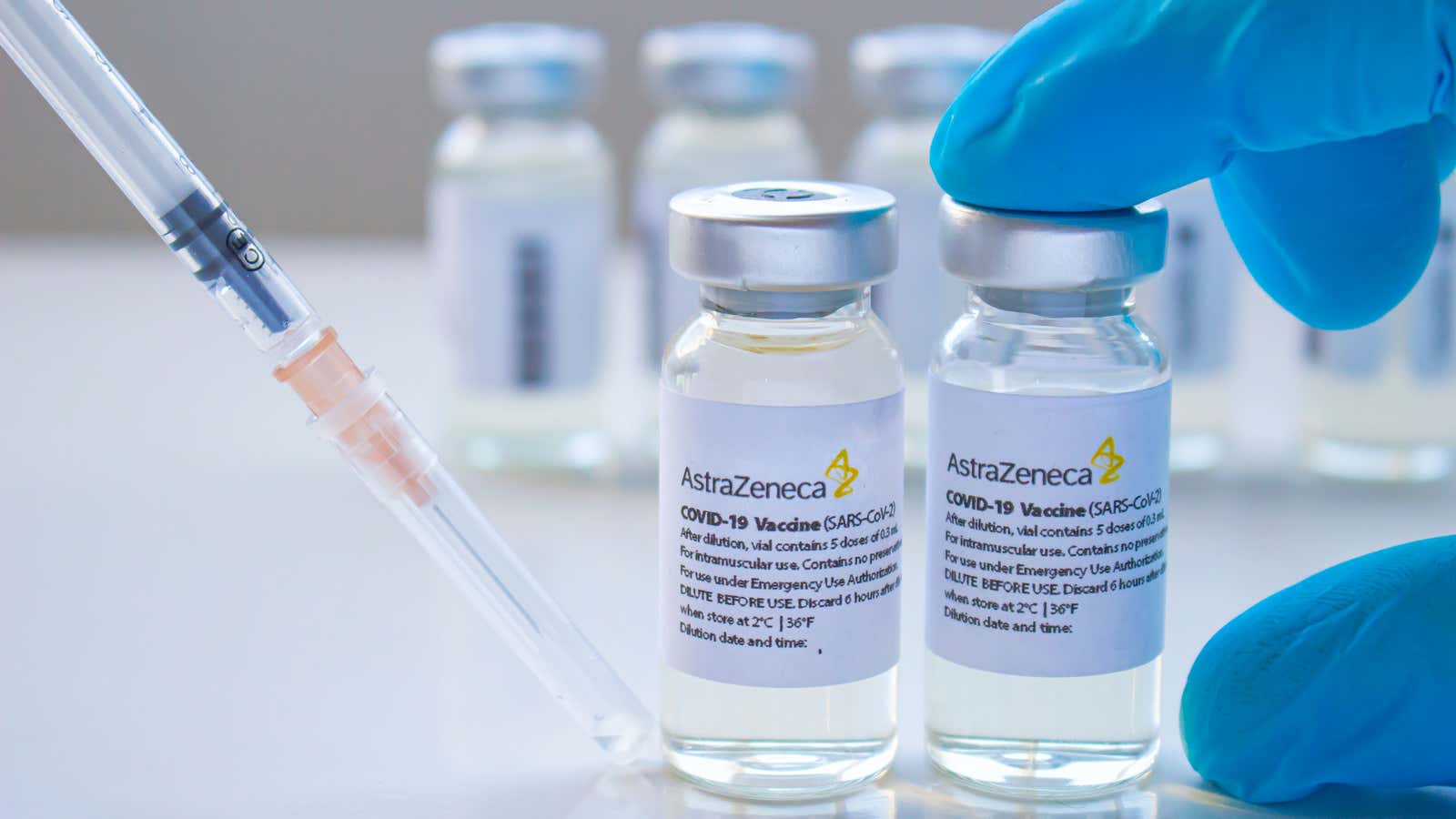What’s the Matter With the AstraZeneca Vaccine?

In addition to the Pfizer, Moderna, and Johnson & Johnson vaccines currently approved for use in the United States, several other vaccines are used in other countries. One of these, the Oxford / AstraZeneca vaccine, is not yet licensed in the US and is controversial. Here is a summary of what we know.
How is this vaccine different from others we have?
The Oxford / AstraZeneca vaccine uses an adenovirus (linked to one of the viruses that causes the common cold) to carry a piece of DNA that encodes the instructions for the coronavirus spike protein. Our cells use this DNA to make a protein, and then our immune system recognizes the protein as an invader and makes antibodies that can recognize and fight the virus. This is the same mechanism as the Johnson & Johnson vaccine. In contrast, the Pfizer and Moderna vaccines use mRNA in the lipid bladder rather than DNA in the modified virus.
The AstraZeneca vaccine is given in two doses and can be stored at refrigerator temperature for up to six months. It is also reported to be cheaper than other vaccines, around $ 4 per dose, rather than $ 10 for Johnson & Johnson or $ 20 or more for mRNA vaccines.
Where is this vaccine already in use?
According to the New York Times Vaccine Tracking System, the vaccine is approved for emergency use in 46 countries as well as in the European Union and fully approved in Brazil. The UK, Australia, India, Canada and Mexico are among the countries where it is currently used.
Why is it not approved in the US?
The first large-scale vaccine trials, completed in December 2020, provided the basis for several countries to authorize the vaccine and begin using it. At the time, there were concerns that the trials were conducted differently in different countries, with different time intervals between doses, and that some participants received the wrong dose (although they proved to be well protected from COVID, despite the error).
The company ran a more recent trial with US participants and announced the results of that trial this week . They plan to apply to the FDA for an emergency use permit so that the vaccine can be used in the United States as well.
Haven’t other countries stopped using it?
Earlier this month, several countries stopped using the AstraZeneca vaccine due to reports of blood clots in some people who received the vaccine. (Blood clots can have a variety of causes and can also result from COVID.) However, analysis showed that blood clots were not more common in people who received the vaccine than in any equally large group of people. people. In other words, there was no reason to believe that the vaccine caused blood clots. Vaccination programs have resumed .
Is it as good as other vaccines?
Like other vaccines currently approved in the US, it appears to provide 100% protection against life-threatening COVID cases, with less efficacy against mild to moderate cases. The complete data has not yet been released, but the total figures are comparable to other vaccines we have.
Somewhat troubling is that the numbers used in the AstraZeneca press release were out of date by the time they were published, and it looks like the company chose to use the 79% efficiency score from the earlier analysis rather than the 76% that was calculated. with the most recent data . In vaccine trials, there is an independent data safety monitoring committee that has raised the alarm over the inconsistency, but this change in number doesn’t mean the vaccine is necessarily less effective, it just undermined the experts’ confidence in the trial company. We will find out more in a few weeks when the FDA is expected to release a white paper with its executive summary and interpretation of the US study data.